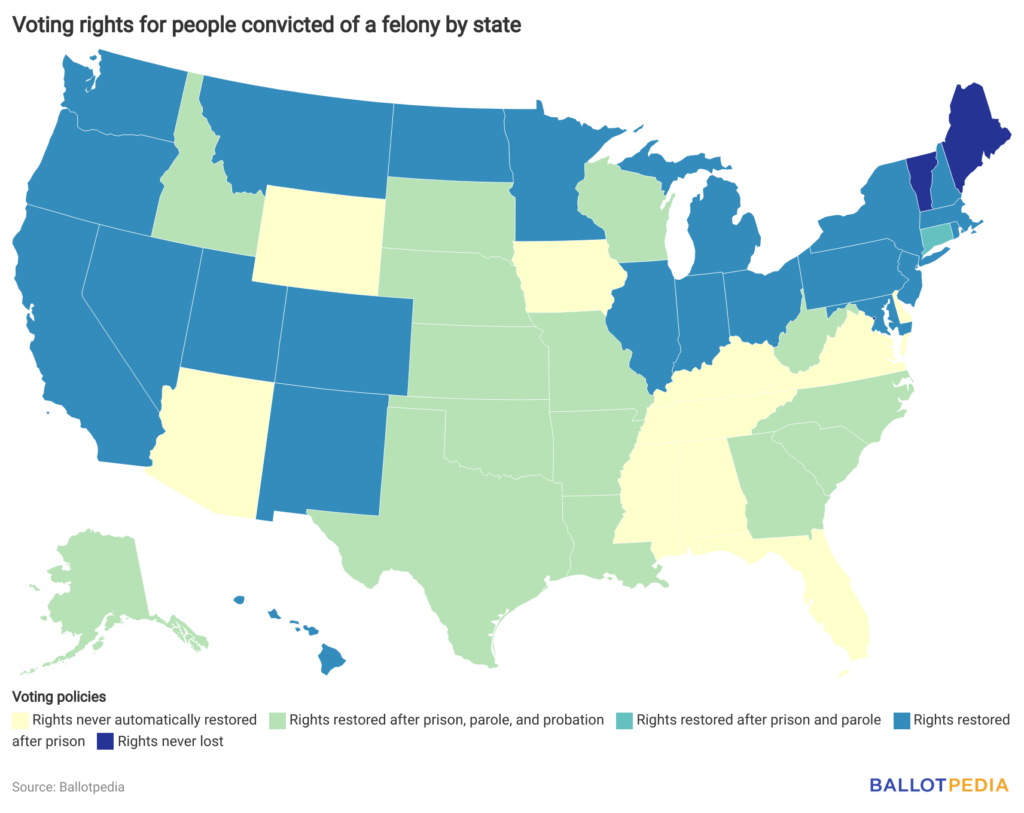On May 13, Oklahoma Governor Kevin Stitt (R) signed HB 1629, a bill that restores voting rights to people convicted of a felony after receiving a pardon or commutation of their sentence.
The legislation had bipartisan sponsorship and the final version of the bill passed the Oklahoma State Senate 41-0 on April 16. It then passed a final reading in the state's House of Representatives 82-0 on May 7.
Oklahoma already restored voting rights to people convicted of a felony after completion of their sentence, including prison time, parole and probation, but individuals who received a pardon or commutation of their sentence were still ineligible to register or vote until the completion of time prescribed for incarceration, parole, and probation under their original conviction.
Under the new law, individuals convicted of a felony regain the right to vote immediately upon receiving a pardon or a commutation reducing their sentence, including parole or probation, regardless of the sentence length or terms of their original conviction. The law also accounts for sentences stemming from a crime that has been reclassified from a felony to a misdemeanor, and allows individuals convicted of these crimes to immediately regain the right to vote when they are no longer in prison, on parole, or on probation for such an offense.
Gov. Stitt did not release a statement or comment publicly upon signing the bill. The legislation takes effect on Jan. 1, 2025.
As of May 2024, fifteen states restore voting rights automatically upon completion of a felony sentence, including prison time, parole, and probation. One state does so after the completion of prison time and parole, and 22 states automatically restore voting rights after the completion of a prison sentence. In two states, Maine and Vermont, people convicted of a felony always retain the right to vote. In the remaining 10 states, voting rights are not automatically restored.
So far this year, one other state has made changes to its voting laws for individuals convicted of a felony. In April, Nebraska removed a two-year waiting period after the completion of a sentence before restoring voting rights. Read more about that new law here.




